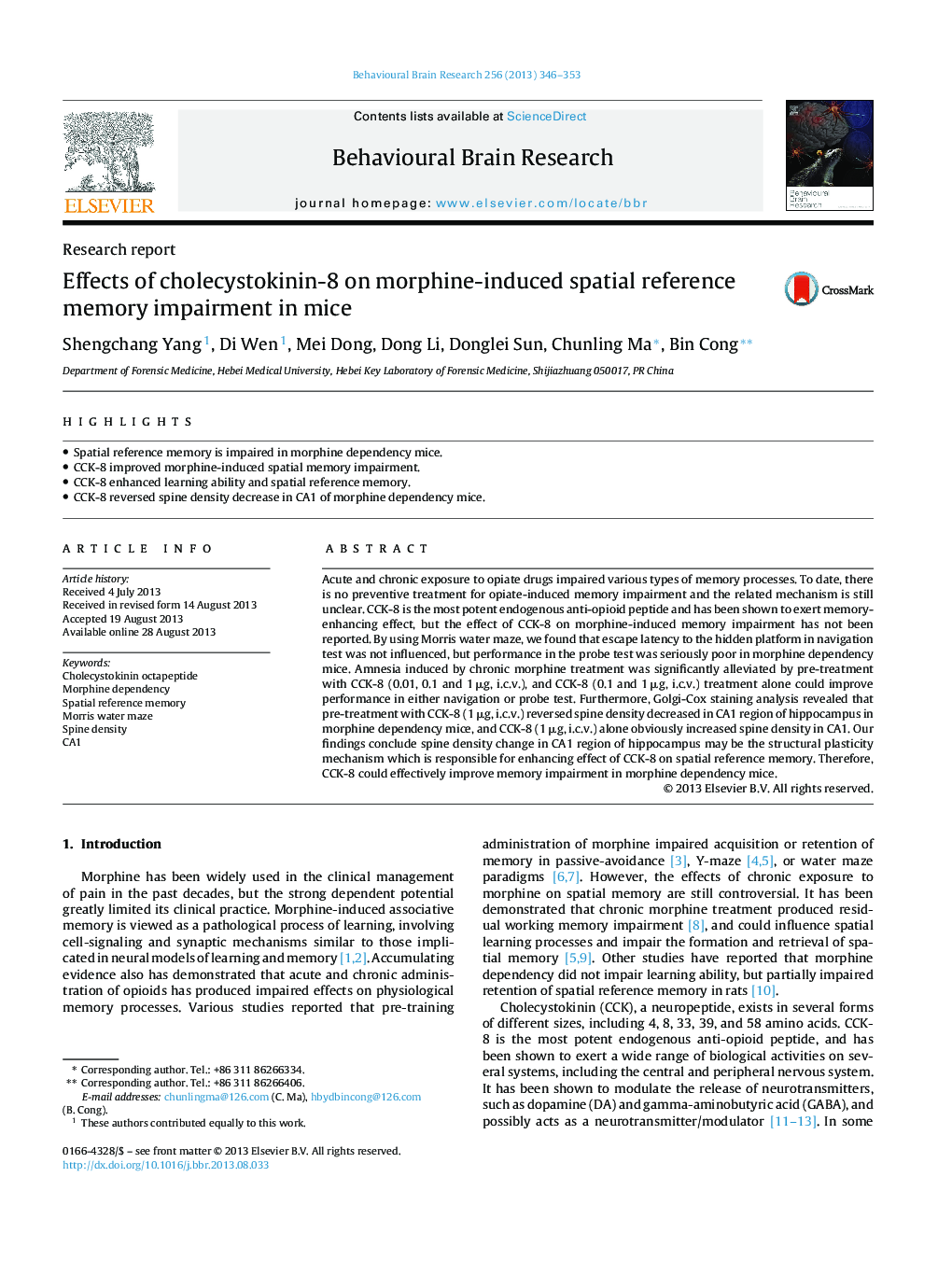| Article ID | Journal | Published Year | Pages | File Type |
|---|---|---|---|---|
| 6258819 | Behavioural Brain Research | 2013 | 8 Pages |
â¢Spatial reference memory is impaired in morphine dependency mice.â¢CCK-8 improved morphine-induced spatial memory impairment.â¢CCK-8 enhanced learning ability and spatial reference memory.â¢CCK-8 reversed spine density decrease in CA1 of morphine dependency mice.
Acute and chronic exposure to opiate drugs impaired various types of memory processes. To date, there is no preventive treatment for opiate-induced memory impairment and the related mechanism is still unclear. CCK-8 is the most potent endogenous anti-opioid peptide and has been shown to exert memory-enhancing effect, but the effect of CCK-8 on morphine-induced memory impairment has not been reported. By using Morris water maze, we found that escape latency to the hidden platform in navigation test was not influenced, but performance in the probe test was seriously poor in morphine dependency mice. Amnesia induced by chronic morphine treatment was significantly alleviated by pre-treatment with CCK-8 (0.01, 0.1 and 1 μg, i.c.v.), and CCK-8 (0.1 and 1 μg, i.c.v.) treatment alone could improve performance in either navigation or probe test. Furthermore, Golgi-Cox staining analysis revealed that pre-treatment with CCK-8 (1 μg, i.c.v.) reversed spine density decreased in CA1 region of hippocampus in morphine dependency mice, and CCK-8 (1 μg, i.c.v.) alone obviously increased spine density in CA1. Our findings conclude spine density change in CA1 region of hippocampus may be the structural plasticity mechanism which is responsible for enhancing effect of CCK-8 on spatial reference memory. Therefore, CCK-8 could effectively improve memory impairment in morphine dependency mice.
